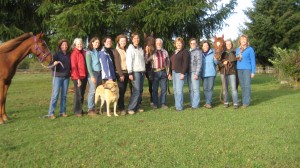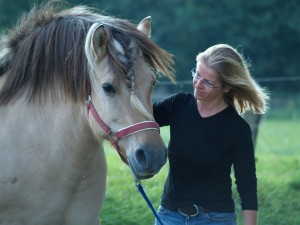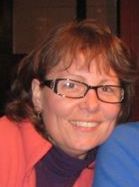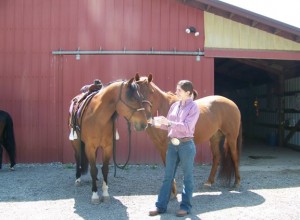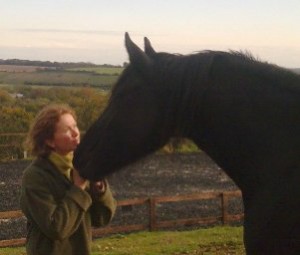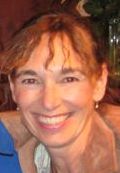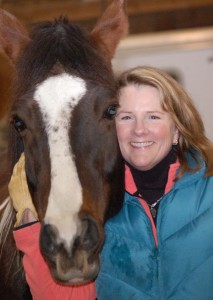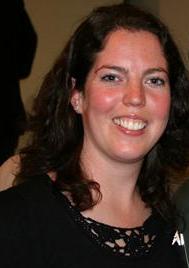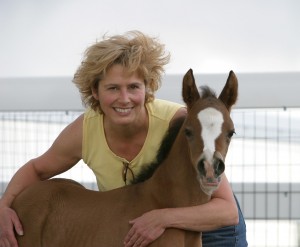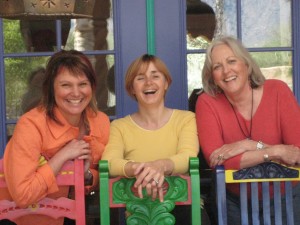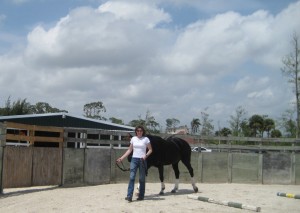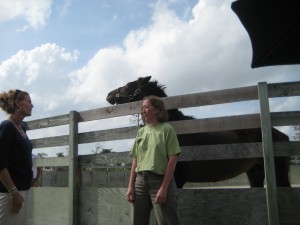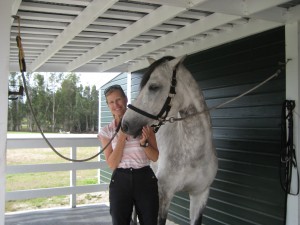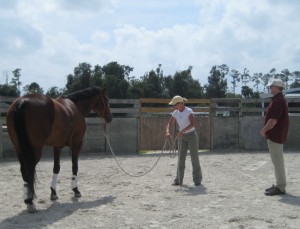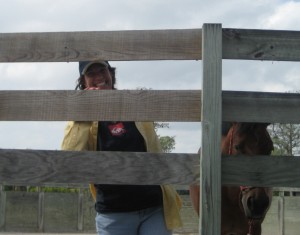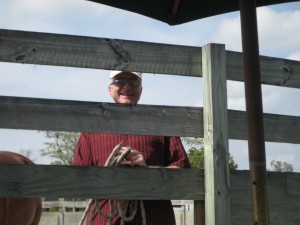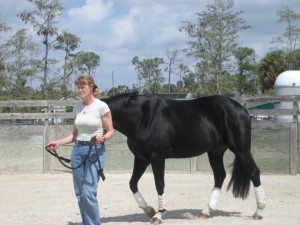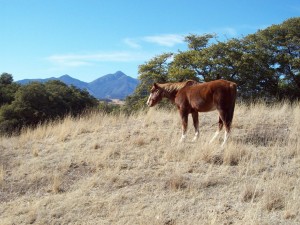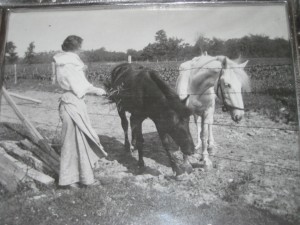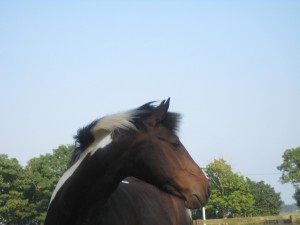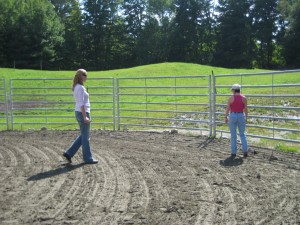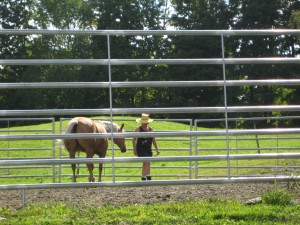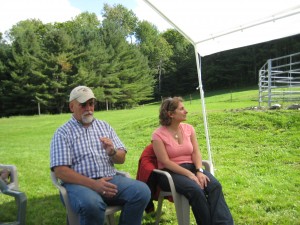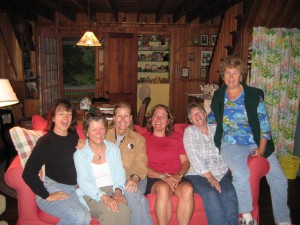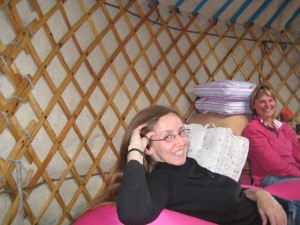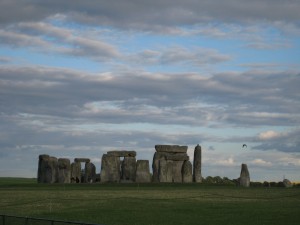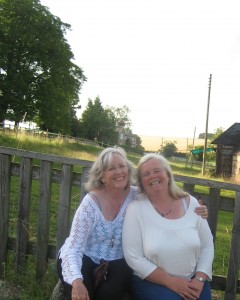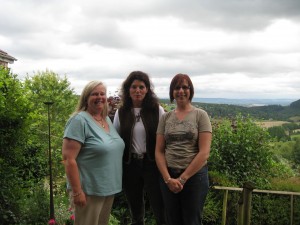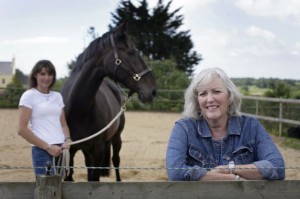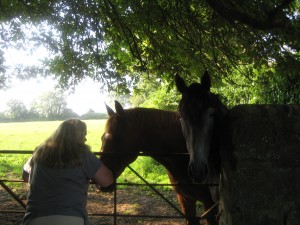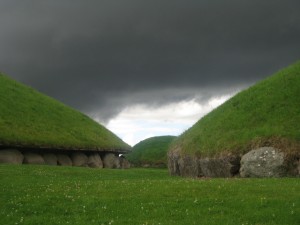Expand Your Equine Facilitated Knowledge & Grow Your Practice; August 19 – 21, 2011, Silverdale, Washington
May 30, 2011 by Kathleen
Equine Assisted Coaching, Equine Facilitated Learning & Equine Facilitated Psychotherapy
with Kathleen Barry Ingram, hosted by Drea Bergquist Bowen
Would you like to learn more about integrating your life skills, experience, and education for a successful and fulfilling equine facilitated learning practice? Drea and I have noticed that facilitators/instructors sometimes have difficulty differentiating between Equine Facilitated Learning, Equine Assisted Coaching and Equine Facilitated Psychotherapy. Our intention with this workshop is to assist others to understand when these types of facilitation overlap; when discernment is necessary; how to combine some of the practices and principles unique to each; and how to assess your specific skill set and gifts to identify your individual practice.
The balance and integration of science and spirituality, and wisdom and psychology in your life and your practice will also be part of our conversations and support during our time together in Washington. The latest research on the brain and the limbic system will be presented and discussed as well as how it all supports the efficacy of our work with the horses.
This workshop will give you the opportunity to connect with like minded people! You can also schedule some individual time with Kathleen, Drea and the herd.
Total Cost for Friday – Sunday: $500 (includes lunch Saturday and Sunday, snacks and beverages)
Nonrefundable deposit: $100 payable to Drea Bergqusit Bowen
To pay by Pal Pal invoice with credit card contact Drea at: drea.b.bowen@gmail.com
To pay by check mail check to: 12620 Willamette Meridian, Silverdale, WA 98383
Special Additional Workshop Thursday, August 18, 2011: Why Equine Facilitating Learning?: A Day for Mental Health Professionals. Contact Drea for details (drea.b.bowen@gmail.com).
About Silverdale and the Ranch:
Drea’s ranch is located just 10 minutes from Silverdale, where you can find hotels on the water, Silverdale Water Front Park, shopping, a brand new YMCA, and great food all within walking distance of your hotel.
Silverdale is located on the beautiful Kitsap Peninsula, surrounded by Puget Sound; the Olympic Mountains to the west and the Cascade Mountains to the east. Summer is an amazing time of year to visit. If you wish to extend your stay there are a tremendous number of things to do in Silverdale. Darkness does not fall until 10:00 PM, leaving plenty of time to play after our day together. Kayaking (Drea has 2 and can round up more if needed), hiking, a ferry ride to Seattle, a visit to the Olympic Peninsula, or a ferry to Victoria, BC are a few suggestions.
Getting to Silverdale:
The Seatac Airport has a shuttle to the Silverdale Hotel and arrangements for a ride can be made if you choose to stay at the ranch.
Accommodation Suggestions:
Silverdale Beach Hotel – located on the water front, offers a restaurant and lounge.
Oxford Suites – boasts a water view and offers a lounge.
Oxford Inn – located one block from the water.
Drea is offering a sleep-in horse trailer with a queen air bed and electricity that could accommodate 1 person. $20 per night. Use the facilities in the house.
Drea has a 27’ Sea Ray that can accommodate 2 people; it will likely be in the water at the marina, a 15 minute drive from the ranch. The marina is magical in the summer, with the Purple Martins are so busy that time of year. The boat has a kitchen and bathroom, the marina offers a deli and showers. $40 per person.
Drea is also offering space in the back yard with easy access to the bottom floor bathroom for those who wish to pitch a tent. $10 a night with the option to coordinate food for breakfast.
Do You Speak Horse or Human to Your Equine Co-Facilitator?
by Drea Bergquist-Bowen
Those of us drawn to equine facilitated learning and psychotherapy come to this field for our own reasons and with our own special set of experiences and level of horsemanship. I started my EFL journey with a solid knowledge of horses and a knowing of how my relationships with my herd had, without question, changed my life. I was searching for the explicit knowledge to understand why this work is so meaningful and powerful and a skill base to help others experience what I had experienced with my herd.
Being a passionate student of equine behavior, social bonding in particular, I have noticed that the same concepts that are so transformative for humans in their work with horses, work in reverse for the horses when we are aware of that potential. The more I thought about this, the clearer I could see how each of the horses in my herd had changed their own neural patterns and behaviors as they found their way to trusting and bonding with me. In the process of building a trusting, respectful social bond with the horses in my herd, I absolutely had been doing this work for my horses just as they had for me. I think of it as human experiential learning.
Horses are not unlike humans, they manifest ingrained neural patterns based on their life experiences. Very few of the horses we work with will be free of the consequences of conforming to a human world where most people don’t speak their language. For horses the challenges can come from the effects of unnatural and painful training methods, from living as a tool for a human’s competitive ego, being kept in an environment that is unnatural, and from being misunderstood as a species. Every horse on my ranch, except for the two who were born here, have required a diligent effort on my part to lead with my heart, honor their boundaries, and build a dependable bond based on getting to know each other, then like each other and ultimately to trust each other. The remarkable thing about helping horses reconnect with their authentic self expression is how willing they are to shed those traumas and patterns when working with a human who understands the nature of the equine species and who is 100% committed to creating a safe social bond that is based on their nature.
I have noticed in my travels and training that, in many instances, the horse – our partner facilitator, is not considered in the way that I feel truly honors and cares for their contribution to this work. I don’t think this is a purposeful oversight. With our focus on learning the intricacies of helping people we may not have had been presented with the imperative of getting to know the intricacies of the equine just as well. Whether we have come to this work with a lifetime of horse experience or none at all, there is so much to learn about this most amazing animal.
Our work is grounded in connection, relationship, empowerment, and learning to trust and honor our unique gifts and I believe this applies equally to our relationship with our equine partners. Just as we have to be committed to our own personal growth and development, to acknowledge our gremlins, and to bring our best authentic self to our work with our fellow human beings, I believe we also must commit to becoming adept at understanding the equine species so that we are confident, comfortable, and feel safe at all times. From there we can create a safe, emotionally rich and rewarding working environment for each horse, as an individual.
We all have different circumstances with regards to the horses we work with in our equine facilitated learning/coaching/therapy practices so the extent of our relationships with those horses will be a bit different for us all. Ideally, working with horses that we are able to create a strong social bond with is optimal in my opinion. When that is not possible, our deep understanding of the horse as a species is critical to offering them the support they deserve for doing the work we are asking them to do.
I feel that understanding the equine species, who that animal is in nature – collectively as a herd and individually as male and female, how a horse navigates in a healthy emotional and physical state and what it looks like when they are not, and believing it is our responsibility to be just as aware of their base line as we have to be for our human clients is essential and it is part of my path of advocacy for the horse in this work. I am passionate about helping facilitators know the difference between sessions where a gain for the human was taken from the horse versus a gain that came from a mutually shared experience. It is my pleasure to help people truly understand the animal that I love wholeheartedly so that they can enjoy the incredibly deep, heartfelt, social bond that equines are capable of. With a clearer understanding about the richness in relationship that is possible for us with our equine co-facilitators we have the opportunity to go from being good facilitators to Inspired Facilitators. And you know the horses are going to teach us a few things about ourselves along the way!
Meet the ‘Heart of the Herd Ranch’ Herd – In order of their arrival
Homer – 23 year old sorrel quarter horse gelding. IHe is a Lamborghini with his athleticism and forward drive. He is a lot of horse and he has taught me volumes about patience, seeing and feeling the horse inside, and gratitude. He is the rock of my herd, my go to guy, and I aspire every day to be the kind of leader he is in the herd.
April – 24 year old red bay appendix quarter horse mare – the stories I can tell about the thoroughbred side (it has to be the thoroughbred) of this mare will touch my heart and make me laugh until I cry until the end of my days. I paid a good bit to rescue this mare with no intention of keeping her. No one liked her. Human or horse. She was a beautiful soft doe eyed empty shell. She is sweet and spicy and the epitome of the stereotypes about mares. Committing to her and watching her find her way out of her darkness has been humbling and amazing. Today we are heart girlfriends!
Skye King – 6 year old sorrel quarter horse gelding. I flew to Montana to look at a broodmare band with my eye on Annie, Holly or Blondie. I flew home having purchased a 2 year old gelding. Our journey together has been very interesting and he is the one in a million horses that every horse owner wishes they had. He has grown into quite an amazing young man and everyone adores him.
Holly – 8 year old sorrel mare. Words cannot express the depth of bond this mare is capable of. She is the lead mare of my herd. She IS the sacred lead mare of fantasy and lore. We are soul sisters and I have had to earn every fiber of our connection. I am so blessed to have her in my herd to witness and be a student of and to stand beside.
Sierra – 3 year old sorrel mare. Holly’s filly. Funny, feisty, sweet, spicy, athletic, coy, lead mare in training. It is has been my privilege to raise her with Holly. I welcome getting her under saddle next year and anticipate some rides of my life!
Johnny – 3 year old red bay gelding. April’s colt. Regal, smart, sensible, incredible mover, loves to run, high play drive, brave and is going to challenge me to take my horsemanship to the next level. He is blessed with both of his parents stunning good looks.
Rasa – 7 year old red roan quarter horse mare. We are just getting to know each other. She came with a lot of emotional scars and trauma. She is coming out of her shell and is on of the most expressive mares I have ever known and we are just barely at the tip of the iceberg. I am thrilled that she is part of the herd. She is low mare and wants the mares above her to know what is going on.
Annie – 7 year old sorrel quarter horse mare. Also a new mare that came with a lot of emotional trauma. She has been slower to trust and let a connection happen. We are making progress and I am just starting to get a feel for the heart that she has. Rasa and Annie are extreme cases of the kinds of horses we may find in our practice experience and sharing their rehab is part of my mission.
Balancing Relationships through The Way of the Horse; September 16-18, 2011, Dusseldorf, Germany
May 30, 2011 by Kathleen
How do you find balance in all of your relationships? During these 3 days, the horses can help you to better understand your emotions and the messages behind these emotions. Get to know your own boundaries and experience and feel your boundaries in a whole new way with humans and horses. Specific exercises are designed to help you learn more about your body’s innate wisdom and the body language of others.
How can you be more authentic in all of your relationships? By learning more about our survival patterns and beliefs, which often unconsciously guide us, we can live from a place of authenticity in the present moment. The horses – as consummate teachers -mirror and demonstrate when our feelings and thoughts inside match our behavior outside and allow us the opportunity to heal and move into a place of thriving, not merely surviving.
Please join us for this non-riding workshop. Previous horse experience is not necessary. The workshop will be held in English with German translation when needed. This is an approved Epona beginning workshop, www.eponaquest.com.
Kathleen will be available for individual sessions 3 days prior to workshop and 2 days following workshop dates.
Cost: 495€ Snacks and vegetarian lunch will be provided each day.
For more information about the workshop, overnight accommodations and to register contact:
Eva Marie Balzer
Coaching for Humans and Animals
Stockweg 143
45481 Mulheim
Germany
Phone: +49 (0)2102 5283278
Email: kontakt@evabalzer.de
Private Sessions: Connecting the Pieces with Kathleen Barry Ingram and Sun Tui, June 20th – July 8th, 2011
April 21, 2011 by Kathleen
These private intensive workshops afford the opportunity for an individual or partnership (personal or professional) to deepen awareness of personal issues, core feelings and areas of bodily tension that inhibit the ability for us to reach our fullest true potential. Experience the spiritual and scientific biology of emotions to elicit an Authentic Sustainable Relationship in all areas of personal and professional life. Workshops might include elemental horse related activities, a sweat lodge, and swimming. Daily sessions will begin with Tai Chi with the Herd and conclude with personally tailored Horse Way TM Map Meditation. All activities are designed to explore and integrate an expansive, yet grounded, mind set capable of endless compassion, innovation, energetic adaptability and creativity.
A bio dynamic organic lunch and nutritious snacks will be tailored and served to your tastes. Overnight Accommodation available.
Sun Tui is the founder and director of IFEAL and is an Advanced Epona Approach Instructor. She teaches Horse Way Tai Chi and Integral Body Mind NLP Therapy.
To register: www.IFEAL.me
The Zone of Intuitive “Knowing,” A 4 Day Group Intensive; East Sussex, England: June 14 – June 17 2011
April 21, 2011 by Kathleen
Explore the subtle energetic connections between all of life through the scientific, psychological and spiritual dimensions of Equine Facilitated Learning and Psychotherapy with the Epona Approach™
Horses, as consummate teachers, can show us how to re-discover, connect and develop our “knowing” selves. The Zone of Intuitive “Knowing” comes directly from the ‘brain in the gut’ and the ‘brain in the heart’. This workshop includes experiential exercises with horses that engage our innate abilities to use our organs of perception. We can choose to enter the Zone of Intuitive “Knowing” through direction from these powerful centers of intelligence in concert with the intelligence centered in the brain. When fully grounded we are able to extend our self-awareness into all aspects of daily life and live authentically each moment with tangible success.
2011 Calendar of Events
December 13, 2010 by Kathleen
2011 is bringing new opportunities for all of us and I will continue to teach in training programs in Canada at www.horsespiritconnections.com with Wendy Golding, Andre Lepiteaux and their amazing herd of horses. I will also be working with the team in United Kingdom at www.ifeal.me with Suntui, Barbara Murray and Shelley Carr and the wonderful AHHO herd.
March 15-19: Sacred Pause in Tubac, Arizona the-sacred-pause-flyer-20111
ADVANCED MENTORSHIP: New for 2011
December 13, 2010 by Kathleen
In 2011 Kathleen is offering individual advanced mentorship opportunities for interested and qualified professionals seeking the latest psychological and scientific information supporting the practice of Equine Facilitated Learning. Each mentorship is personally designed to meet the needs of the student. For more information on this please contact Kathleen directly.
Sacred Pause: Tubac, Arizona March 15-19, 2011
December 13, 2010 by Kathleen
Join us at this enlightening, expanding, and encouraging retreat. We promise a time of rejuvenation and relaxation at the exquistive Pocket Sanctuary in Tubac, Arizona (just 40 minutes south of Tucson and a world away from the city!)
For more information and registration: the-sacred-pause-flyer-2011
FORREST GUMP IS MY ROLE MODEL
April 13, 2010 by Kathleen
It’s early on Easter morning, April 4, 2010, and I woke up thinking about life and all of the challenges we are facing with the global economic crisis, environmental changes, poverty, war, competition for limited resources, and just, well, all of it! I am used to asking for answers to these kinds of unanswerable questions by paying attention to what floats through my mind in the early hours before my rational mind takes over. What a surprise to see an image of Forrest Gump running in the desert. It came to me then that I want to be more like Forrest and remember what life was like in the innocence of youth before my ego and my rational mind hijacked my spirit and my soul.
Some notable quotes from my new role model, Forrest, might just enhance my point:
Forrest Gump: My momma always said, “Life was like a box of chocolates. You never know what you’re going to get.”
Mrs. Gump: You have to do the best with what God gave you.
Forrest Gump: Mama says they was magic shoes. They could take me anywhere.
Forrest Gump: Now you wouldn’t believe me if I told you, but I could run like the wind blows. From that day on, if I was ever going somewhere, I was running!
Forrest Gump: When I got tired, I slept. When I got hungry, I ate. When I had to go, you know, I went.
Elderly Southern Woman on Park Bench: And so, you just ran?
Forrest Gump: Yeah.
Forrest Gump: My Mama always said you’ve got to put the past behind you before you can move on.
Jenny Curran: Were you scared in Vietnam?
Forrest Gump: Yes. Well, I don’t know. Sometimes it would stop raining long enough for the stars to come out… and then it was nice. It was like just before the sun goes to bed down on the bayou. There was always a million sparkles on the water… like that mountain lake. It was so clear, Jenny, it looked like there were two skies one on top of the other. And then in the desert when the sun comes up, I couldn’t tell where heaven stopped and the earth began. It’s so beautiful.
Jenny Curran: I wish I could’ve been there with you.
Forrest Gump: You were.
Forrest Gump: Mama always had a way of explaining things so I could understand them.
Forrest Gump: What’s my destiny, Mama?
Mrs. Gump: You’re gonna have to figure that out for yourself.
Well, I wish I could be more like Forrest, and sometimes I can feel his innocence and awe for life without all of the shouldas and ought- tos coming in to disturb my present moment. I know with humility and extreme gratitude that my teachers, the horses, my dog Grace, and all of the animals and nature are really speaking to me, if I would only listen! Remember how Forrest ended up being in a lot of places just because he showed up?
Thinking about all of this brought me back to the work of Anthropologist E. Richard Sorenson and his research on what he calls preconquest, characteristics of the minds of indigenous peoples, versus postconquest typified by modern rationalism and the consciousness that develops from these different worldviews. His research is extensive and interesting as an understanding about what happens when the logical, rational Western mind overtakes the liminal awareness of the indigenous tribes and the animal kingdom. Preconquest consciousness is rooted in feeling and sensory awareness. Like our horse teachers, individuals in such societies are highly sensitive to changes in muscle tension in others indicating shifts in mood. If others feel good then you feel good; if others feel bad then you feel bad. Sorenson calls this “socio-sensual” awareness.
I believe that many of us are throwbacks to this type of consciousness and that our sensitivities and “sixth sense” are a result of us recovering our true natures. We feel what is not right but often feel helpless to change the situation. In my 30 years of experience as a therapist, I encountered many sensitive individuals who had been broken by the system or had used drugs and other means to dull their senses to survive in this paradigm. When individuals who operate from an epistemology of feeling encounter reason, they will automatically be overshadowed by reason. Individuals operating from a feeling perspective will be abused or silenced by having their experiences matched against the rigorous logic of rational analysis. Feeling individuals feel invalidated, and innate understanding is blocked by “truth.” The question is “What is “truth”? Our opportunity is to be able to integrate our understanding based on scientific knowledge and mystical wisdom and to create a new paradigm which is inclusive. Clear reason is rooted in the wisdom of the body through feeling which is certainly something the horses demonstrate for us.
This is a lot to digest, especially on a warm Sunday morning in Tucson, Arizona. However, I believe so many of us are interested in horses and other forms of animal assisted therapy for just some of the reasons stated by Sorensen’s work with the indigenous tribes of New Guinea. We need and are looking for this type of consciousness, awareness, mindfulness, and sensibility; and I believe working with the horses is one of the ways to be in this state of grace and openness. I especially like Sorensen’s observations that preconquest groups are both individualist and collective. When we look and observe the horses in their natural settings, we see this behavior and way of being all of the time. This consensual type of leadership allows for individual creativity and “socio-sensual” awareness when the motivation for individual well-being is integrated with the well-being of the entire community
Maybe this is an opportunity for us to learn from indigenous people, the animals, and to remember what Forrest Gump had to say. So thank you, Forrest, for reminding me, as one of my role models, to stay in the present, enjoy this day, and be grateful for Spring!
Kathleen Barry Ingram
April 2010
THE YIN AND THE YANG OF IT
February 14, 2010 by Kathleen
THE YIN AND YANG OF IT
Really listening from a deep heart space (the Yin) is paramount when I am mentoring or coaching an individual since only real and lasting change happens in relationship. As a relationship coach I hope to offer people the possibilities to take action (the Yang) in their lives for positive and sustainable change.
In the early 90’s I was in one of the many processes in my life of reinventing myself when I started a private psychotherapy practice in Tucson after being in the corporate world at Sierra Tucson. Bernadine Johnson (now retired and very married!) and I began a series of workshops we titled, Become Your Own Role Model. We were women who had grown up in the 50’s and 60’s ourselves with very traditional female role models and found ourselves self-supporting and single without much of a role model for how to be and how to do this. The initial offering morphed into future workshops around this theme with horses as co-facilitators. The horses and most definitely the mares ended up being very good role models for this important message: Know and believe in yourself.
What is it that keeps people stuck in old ways of being, believing, and behaving; even when they think they know that other possibilities are out there and they feel they should make a change? In a conversation with David Young last fall I had the opportunity to delve deeper into the distinction between fear and vulnerability when he said, “I am a man and I don’t think so much about vulnerability, I think about risk.”
Actual fear is an outside factor where our physical, emotional, psychological or spiritual safety is being threatened versus inside fear or the feeling of vulnerability. However, because of our wonderful limbic system (our body’s survival mechanism) both fears feel the same in our bodies. The positive side of vulnerability is the novelty of meeting some part of yourself that is new or that you are rediscovering and the unlimited opportunities which are available with this new way of seeing and being in the world. Do you remember hearing, Feel the fear and do it anyway[1]? This is a very good motivating statement and with the horses help I have been able to coach people on the differences between these two types of fear.
I recently worked with a client and a herd of 3 horses (a gelding and 2 mares) where this concept came to life for her and for the other group members. One of the horses, the gelding, began engaging with her even before she entered the arena. We were discussing what she called “the power of fear” and after scanning her body for information and finding where this fear was lodged I asked her to turn around and look at the 3 horses in the arena. The gelding had come up to the gate from a considerable distance in the back of the arena. With 3 horses loose in the arena we had the opportunity to see which horse would step forward to engage with her and perhaps give her answers to her questions in this present moment experience. She went in safely and began to use her sensing body to determine proximity and the feelings which arose with each step towards or away from the horse. Prior to going in I had given her a short description of the differences between fear, vulnerability and the action of risk and coached her on the distinctions. The client and the horse engaged in this dance of relationship for some time and I asked her to walk away to see what would happen. Previously she had stated that her biggest fear in relationship was the fear of abandonment, and that in the past she compromised her values and her beliefs to not be left and experience the emotions which might follow. She and the horse had established a limbic connection through the a concept called emotional resonance (where you feel and resonate with another being emotionally); therefore there was a possibility that this might feel just like it had in the past when she took the chance of walking away or considering a different path in a relationship with a loved one. One of the biggest benefits from experiential learning with the horses is the immediate heart felt sense of connection they can give us (one we often want to keep forever). By taking the action of walking away she felt in her body how it might be to risk this imagined abandonment once the connection had been made. He never left her side and this woman, not an experienced horse person, began to realize what the dance of relationship with another whole being could feel like. She felt the yin and yang of it, never lost her sense of self, and came out of the arena radiant and fully alive. After she came out of the experience and shared what she had felt prior to going in and what she hoped to receive from the horse, the group members gave her their perceptions of what they saw and felt watching her with the horse. They validated for her not only what she felt and experienced, but as conscious observers gave her information which was new and might prove valuable the next time she stepped into relationship with another human. My sincere wish for her is that she remembers this experience in her whole body and can reclaim her sense of self in every relationship.
The other participants wanted to learn more about this risk or yang action and I gave them a little of what I am currently teaching about this. If we only experience vulnerability without action, we may feel weak and even experience “learned helplessness”[2]. The key is to become conscious and take action or risk, a yang movement, only after we have accessed the feeling, or yin place, we are presently experiencing. If we take the risk unconsciously without an assessment of the possible consequences of this action, the likelihood of success is limited and the probability of failure, injury or even death is greater. Some people may be more apt to take the risk unconsciously while others may be immobilized and remain stuck in the same behaviors and patterns. So we must: first notice the sensation or feeling and identify the emotion; second engage in self-regulating our arousal systems so that we can be present and cognitively aware; and third become curious and take conscious thoughtful action (the risk part).
As a mentor/coach I really love assisting individuals in finding this lost part of self and to re-igniting the original blue print of their souls. Together we can explore the yin of it and with support I can help you move into the yang of it. So whether you want the opportunity to engage with the horses or wish consultation and support with me in person or by telephone, consider giving yourself this gift for the New Year.
[1] “Feel the Fear and Do it Anyway” by Susan Jeffers
[2] “Learned Helplessness” a concept attributed to the work of Hans Seligman
Efficacy of EFL Supported by Latest Brain Research
February 7, 2010 by Kathleen
Efficacy of EFL
Supported by Latest Brain Research
I can’t tell you how often I have witnessed a client coming out of a quiet session with a horse and heard them say, “It was magic! I felt like myself for the first time My heart just opened and these tears came flowing out—but they felt free, open —you know not jammed up in my throat”. I could go on and on about what people felt in the presence of the horse and what other people witnessed, but I think you get the point. Guess what, it is not magic but is a process scientists now can actually name which happens only in relationship. What the client and others felt, saw, and experienced is the limbic connection of two beings. Relationship does affect the revision of these pathways in the brain through the processes of limbic resonance, limbic regulation and limbic revision or restructuring. .
The book, A General Theory of Love is an excellent source for much of the research on this subject. Some of the information contained in this book about how a therapist’s relationship with a client is the determining factor in long term healing; this can be applied to how and why equine facilitated learning works.
Look at some of the direct quotes from this book about the limbic connection and see if you agree.“The first part of emotional healing is being limbically known [limbic resonance]—–having someone with a keen ear catch your melodic essence…a precise seer’s light can still split the night, illuminate treasures long lost, and dissolve many fearsome figures into shadows and dust. Limbic regulation happens through relationship.But people do not learn emotional modulation as they do geometry or the names of state capitals. These concepts are stored in the neocortical brain. People and animals absorb the skill from living in the presence of an adept external modulator [the horses with congruent and authentic facilitators], and they learn it implicitly.”[1]
I can’t begin to tell you how passionate I have become about some of the newest brain and body research and information coming from very reliable and dedicated scientists and clinicians. Most of my professional life, I have practiced as a clinician whether I am conducting a session as a psychotherapist, coach, mentor or teacher. The many “miracles” I have been a part of fills me with awe and hope for the ability of people to learn new things, change and have better lives. The work that I do with the horses has transferred to everything I do and teach since these brilliant beings are so good at helping people come back to their true selves. Leigh Shambo has coined the term we use consistently now called the “homerun”. A core value at HEAL is this “homerun”—the ability to immediately anchor increased connectivity human to human. This is actually what is often missed when someone has an experience with the horses and we believe that the limbic revision happens when the facilitator helps the client to fully embrace and integrate this new way of being into the human world, the “homerun”.
The book, The Brain That Changes Itself[2] has some of the best information on the neuroplasticity of the brain. Neuroplasticity of the brain is the term used to describe the capacity of our brain for creation of new neural connections and for growing new neurons in response to experience. In the process of experiential learning with the horses, the experience itself which is vey new for most people, i.e., being with a horse without doing anything can actually assist the client in forming and developing new neural connections. I often give a simple explanation like this: The horses help the humans to see, feel, and believe in the possibility that the old super highway way of being and responding to a familiar person, stimulus, thought or action can be replaced by a new path—much like the road less traveled. Most of us can visualize this and if we believe in change we can be open to this new neural connection and perhaps the old super highway—which helped people to survive but is keeping them from thriving will eventually become grass and dirt and the new path will become a newer, quicker highway to an expanded vision of life.
In Daniel Siegel’s latest book, Mindsight, he eloquently and factually supports the efficacy of experience in relationship to help people grow and change. He believes that most people come into the world with the brain potential to develop mindsight, but the neural circuits that underlie it need experiences to develop properly[3]. He describes mindsight as our seventh sense and tells a story of a ninety-two year old man who was able to overcome a painful childhood to emerge as what he calls a mindsight maven. Siegel believes, as do I, that it is never to late to stimulate of growth of neural fibers that enable mindsight to flourish. How exciting is that!
The horses and good facilitators both with listening hearts can really help people be open to the possibilities of change and with limbic revision guide them towards the probability of a new life. One of the consistent ways of doing this is what I call holding the sacred space of possibility.This is a space, nestled between two heart beats, where two beings breathing together co-create the possibility for lasting and sustainable change.
[1] “General Theory of Love” Lewis, Amini and Lannon
[2] “The Brain that Changes Itself” Stories of Personal Triumph from the Frontier of Brain Science by Norman Doidge, M.D.
[3] “Mindsight” The New Science of Personal Transformation by Daniel J. Siegel, M.D.
2010 EVENTS CALENDAR
February 6, 2010 by Kathleen
2010 Events Calendar
Working Calendar for 2010 Events, Workshops and Training Programs: Look under Events for full descriptions. New Information will be added monthly.
February 9-13 Sacred Pause Retreat- Tubac, Arizona
February 19-21: Feb 26-28 FEEL Program (www.horsespiritconnections.com) in Toronto, Canada TRAINING PROGRAM
March 12-14 Equine Alchemy presents EFL MasterMind Course, Wellington, FL
http://www.equinealchemy.com/EFL_MM/
May 3-9 HEAL Training Program Week One/Leigh Shambo (www.humanequinealliance.org) in Chehalis,WA TRAINING PROGRAM
May 22-25 Sacred Space: The Zone of Intuitive Knowing (www.ahho.me) in Sussex, United Kingdom
June 7-11 AHHO Training Program in Sussex, United Kingdom www.ahho.me)
June 18-20 Germany workshop/Eva Balzer (www.evabalzar.de)
July 9-11 FEEL TRAINING in Toronto, Canada (www.horsespiritconnection.com)
July 23-25 Energy and Grace, 6th Year! (www.humanequinealliance.org) Washington State
September 5-11 AHHO EFL Training in Sussex, United Kingdom/Suntui (www.ahho.me)
September13-18 Personal Mastery: The Missing Piece, Kathleen with Suntui and Flo Magdalena (www.soulsupportsystems.org) Sussex, United Kingdom, www.ahho.me
October 3-7, 2010 HEAL Group Training Program, Washington State www.humanequinealliance.org
October 11-17 HEAL FacilitatorTraining Program :Week Two/Leigh Shambo Washington State (www.humanequinealliance.org)
The Way of the Horse: Kathleen’s Youtube Interview, 2009
January 4, 2010 by Kathleen
http://www.youtube.com/watch?v=naryzMpIg8U
Watch this interview with Kathleen produced through Horse Spirit Connections, Toronto, Canada in February 2009.
SACRED SPACE: THE ZONE OF INTUITIVE KNOWING, Sussex , UK May 22-25,2010
November 30, 2009 by Kathleen
SACRED SPACE: THE ZONE OF INTUITIVE KNOWING
East Sussex, United Kingdom
Exploring the Scientific, Psychological and Spiritual Dimensions of Equine Facilitated Learning and Psychotherapy
Monday May 30 – Friday, June 2, 2011
COST: £895
Led By Kathleen Barry Ingram MA co-creator of The Epona Approach ™
This workshop is for people interested in the subtle energetic connections between all of life. We exist interdependently in relationship with all in the invisible web of the quantum field. Horses, as consummate teachers, can show us how to re-discover, connect and develop our “knowing” selves. The Zone of Intuitive “Knowing” comes directly from the ‘brain in the gut’ and the ‘brain in the heart’, and informs and integrates this “knowing” with our neocortex, thus allowing for conscious choices in the present moment. This workshop includes experiential exercises with the horses that engage our innate abilities to use these organs of perception. We can choose to enter the Zone of Intuitive “Knowing” through direction from these powerful centers of intelligence in concert with the intelligence centered in the brain. When fully grounded we are able to extend our self-awareness into all aspects of daily life and live authentically each moment with tangible success.
Suitable for business and life coaches, counselors, psychotherapists, healing therapists (any discipline), teachers, business managers, trainers and consultants, all horse professionals or anyone interested in human growth and development. This is a non riding workshop. (This workshop can be used as a qualifying workshop for approved EAP/FEAL Qualification Training)
CONTACT: Suntui www.authentichorsehuman.org
COST: £895
Great Cansiron Farm House, Cansiron Lane, Hartfield, East Sussex, TN7 4LD
Tel: +44 1342 850330
Skype: suntui1
E-mail: suntui@me.com
HEAL 2009 FACILITATOR TRAINING PROGRAM GRADUATES
November 2, 2009 by Kathleen
HEAL 2009 GRADUATES
HUMAN EQUINE ALLIANCE FOR LEARNING
9 Women graduated from the 2009 program and will be presenting the HEAL MODEL™ to a world-wide audience along with the 2008 graduating class. (look under 2008 Class in Events for information about these facilitators). Leigh, Kathleen and David Young are so pleased that the following individuals will be taking the work and facilitating people and horses towards a more fulfilled and satisfying life.
EVA BALZER: Animal Healing & Coaching for Personal Development:Masters Degree in Business Administration GERMANY
Animal Healer: Acupuncture; Osteopathy; Animal Communication; Reiki I & II; Family Therapy
Contact Information: Germany Tel+491722320836;kontakt@evabalzer.de www.evabalzer.de www.zentaura.de
SANDRA BOE: Founder & Program Director, Boots ‘n Breeches Therapeutic Horsemanship; Advanced NARHA Instructor WASHINGTON STATE “As a therapeutic riding instructor, I have seen the amazing transformative power that happens when you connect in relationship with a horse. I have experienced it myself in my own personal journey as I have coped with multiple sclerosis since 1998. I know I am as well as I am because of my work with the horses. As an EFL practioner, I hope to offer the opportunity to engage in healing relationships with our equine partners.”
Contact Information: Tacoma, Washington
sreid@harbonet.com, www.bootsnbreeches.com
MATNEY COOK: TLC Horsemanship: Safe & Gentle coaching for both horses and humans who walk the path towards true connection through self-aware horsemanship. WASHINGTON STATE
“What were dreams for me a year ago are now a rality because of this life changing HEAL program. Not only have I learned the skills that enable me to step into my soul’s purpose, I’ve also gained the confidence to facilitate others on their journey to authenticity. I am so grateful to Leigh and Kathleen for helping me to hear the horses calling and learn to believe in my own magic.”
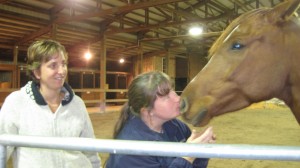
Maaike, Tammy and Tanyka"This year has been life changing. I got to know myself a lot better and I became more whole. I learned to trust my intuition, my body and my inner wisdom. Horses are great healers and I leanred how to facilitate and hold the "sacred place of possibility" for others. I want to share the wisdom of the horse with others. Kathleen and Leigh created a safe place for everybody to open up and bloom. I learned so much and am really thankful for the place and the amazing people.Contact Information: PortugalQuinta do Colaco, PortugalTel: 00351275561538Tel: 00351916100048maaikeinportugal@mac.comwww.howdoyoudo.nlEmma & Charlie
October 2009 Horses are Challenging us to WAKE UP!
October 2, 2009 by Kathleen
Newsletter article for www.horsespiritconnections.com
Horse Spirit Connections present “The Way of the Horse” and interview with Kathleen Barry Ingram, see it on You Tube!
Will Rogers said, “There is nothing better for the inside of a man as the outside of a horse”. I would take this one step further and say also the insides and the outsides of a horse since they teach us so much about being in the present moment and coming from a congruent place in our hearts. My privilege for the past 10 years has been to learn from these consummate teachers about myself, life and relationships. I began my journey with horses as therapists at Sierra Tucson, a hospital in Arizona specializing in addiction treatment, where Reed Smith hired Barbara Rector to engage equines in the treatment team for the new adolescent center in the early 1990’s. At the time I was the corporate director of marketing for this world renowned center and you can read more about this story in the article titled “Unexpected Grace”.
In 1992 I began my private practice in psychotherapy and I worked with Barbara Rector and Ann Alden, it was at one of their workshops that I met Linda Kohanov. Linda and I developed and taught the Epona Approach™ for eight years. We taught nine Epona apprenticeship classes together, many workshops, and experienced the incredible growth of this approach working with our equine colleagues. I have immense gratitude for all that Linda and I experienced, learned and developed over those years. What I lovingly call the “straw bale/ porta potty days” with our first workshops in late 1999 to Epona’s move to the magnificent facility at Apache Springs Ranch located in Gardner Canyon in Sonoita, Arizona; we met, taught and engaged with people and horses from all over the world.
In 2008 I began my current journey which has taken me to England, Ireland, Belgium, Vermont, Florida, New York State, Oregon, Washington, Colorado and Canada. One of the most consistent observations I have had is that the horses world-wide are speaking to each other. Rupert Sheldrake’s concept of the morphogenetic field; Candace Pert’s research on the molecules of emotion; and Larry Dossey’s description of the nonlocal nature of mind has demonstrated that all of the horses are communicating with each other and are taking us to new levels of personal and interpersonal awareness. They are literally helping us to wake up!
I have been conducting advanced workshops with others, some of whom were my students, and also am teaming up with people like Wendy and Andre and teaching what I call the psychological/spiritual/scientific foundations underlying equine facilitated learning in various training programs. What I have noticed as a theme is the people I am teaching and training are asking for guidance and direction for their life work based on their own intuition, self-awareness, and personal knowledge gleaned from life challenges; and turning possibilities into probabilities. Some come as students to learn this work with horses and people in advanced human development, others come for their own personal growth, and some come as a group to learn leadership from a collaborative point of view. The horses, as always, infuse people with wisdom, courage, vision and strength. As our role models, they teach us to offer support when appropriate, wait for the right moment to intervene and not take anything too personally.
One of the key components developed at Epona is something Linda created called the “Emotional Message Chart”. Horses teach us to use emotion as information and that no emotion is good or bad. Psychologist Barbara Fredrickson’s ground breaking book, “Positivity”defines, records and validates her research and findings over a period of 20 years regarding the importance of balancing Positive Emotions with Negative Emotions. She has found that a ration of 3:1 positive to negative is needed to balance our emotions. She says, “Negative emotions are necessary for us to flourish, and positive emotions are by nature subtle and fleeting; the secret is not to deny their transience but to find ways to increase their quantity. Without a balance of positive to negative emotions, she has found that people get pulled into a downward spiral, their behavior becomes lifeless, rigid, and predictable and they begin to feel burdened. It is also important to note that she is not advocating suppression of any emotions but rather balancing them. All positive emotions have one thing is common, which is they are reactions to our current circumstances and are not a permanent state. Why is this so important to note and remember? Positive emotions tend to be more fleeting than negative emotions and happiness is the overall outcome of many positive emotions. She says that positive emotions are triggered by our interpretations of our current circumstances and are felt not only in the body but also tell us what we need emotionally and mentally for the future. This helps us to broaden our minds and outlook and to build what she calls the “broaden and build effect”. Positive emotions are a narrower band of feelings and not an overall judgment about life. A study cited in the Journal of Personality and Social Psychology in November 2008 called “Open Hearts Build Lives” looked at the effects of loving-kindness meditation on people’s resources and attributed the benefits not to learning loving-kindness meditation but to the daily increase in positive emotions that the participants got from this and they concluded that over time positive emotions literally change who we are. I often refer to the psychological concept of a “corrective emotional experience” which happens consistently in the work with horses. When the identity of the facilitator/horse is confused with past figures from childhood, the horses help correct negative thoughts and feelings about certain circumstances or memories by responding positively in the present. This experience helps the client to develop new “neural pathways” in the brain with positive emotions which eventually replace the “super highway” reaction based on past experiences.
We and the herd of horses at Horse Spirit Connection invite you to take this journey with us and begin to live from your true essence. We are often asked how does this work with horses enhance and develop us as Spiritual beings. Michael Singer’s book, “The Untethered Soul” gives one of the best definitions of Spirituality I have seen:
Spirituality begins when you decide that you’ll never stop trying. Spirituality is the commitment to go beyond, no matter what it takes. It’s an infinite journey based upon going beyond yourself every minute of the day for the rest of your life. If you’re truly going beyond you are always at your limits. You’re never back in the comfort zone. A spiritual being feels as though they are always against the edge, and they are constantly being pushed through it. (p 124) “The Untethered Soul” by Michael Singer
The essence of spirituality is letting go of this false sense of self, this façade, and this need to have others behave predictably. It is being in the vulnerable, unknowing part of you. It is taking the risk to Chart Your Own Course. You decide to take the journey by constantly letting go, not clinging, and being a witness to your thoughts, your feelings, and your state of mind. Living authentically from this soulful place is the way to true freedom.
What would it be like to live in the Undivided Self, to use the power of the undivided self to create, to live and to participate fully in life and to Chart Your Own Course? What would it be like to view all people and experiences as new opportunities to see with the heart and the mind?
What I have noticed with my travels is that there is always one common thread. That thread is each horse’s innate ability to take in and honor the essence of the individual exactly where they are in that present moment. We know that being in the present is really the only place where actual change can happen. We have also seen that the experiences with horses allows the individual to “implicitly know” what is important for a full life and also gives them a glimmer of what that could look like.
Seeing with the heart allows us to be in present moment awareness and to live from our authentic self. Your heart is an instrument made of extremely subtle energy. When you “feel” music, see the beauty of a flower, or bird song, you can hear it and see it, but the feeling comes through the filter of the heart. The heart controls the energy flow of opening and closing to others. The heart closes when stored energy, feelings, or unfinished business block the opening of the heart. Barbara Fredrickson and Marty Seligman, former president of the American Psychological Association and founder of positive psychology, among others have taken the scientific rigor developed in traditional psychology, based on the medical model and directed it towards understanding human potential Seligman challenged the field to look at what makes a person healthy rather that what makes them sick. Fredrickson says that one way to increase positivity is to be aware of the present moment, because she says most moments are positive. She says we miss many opportunities to experience positive emotions by thinking too much about the past and the future, rather than being open to what is. “Living in my head got me through difficult times when I was younger and helped me become a great student. But I think it disconnected me from my heart”. I would encourage Barbara and others to join us in nature, to enjoy the present moment, and learn directly from the heart of the horses.
Kathleen Barry Ingram, MA
September 2009 ©
Authentic Horse Human offers EFP/FEEL Training Program
May 13, 2009 by Kathleen
EFP/FEEL Facilitator Training Diploma Incorporating The Epona Approach™ United Kingdom
Facilitated Equine Experiential Learning, FEEL
Instructors: Dr Barbara Murray, Advanced Epona Approved Instructor
Sun Tui, Advanced Epona Approved Instructor
For full Information regarding the FEEL Training Program in the UK
Contact: Sun Tui www.authentichorsehuman.org 044 (0) 1342 822682 cell: 0044 (0) 790 24 6058
Kathleen is teaching during Module 1 and Module 4
Module 1 23rd – 27th August 2009
EFP/FEEL Facilitator Training Foundation Skills
Led by Kathleen Barry Ingram co-creator of The Epona Approach ™
Module 4 Summer 2010
EFP/FEEL Facilitator Integrated Skills Assessment
Led by Kathleen Barry Ingram co-creator of The Epona Approach ™
Florida Continuing Education, March 2009
April 14, 2009 by Kathleen
Refinement of Your Practice
Lisa Murrell, Johanna Husta and the Equine Alchemy herd, www.equinealchemy.com hosted Kathleen for 2 days of continuing education for practioners of equine facilitated learning. Working with Lisa and Johanna and their fabulous herd of horses was so fulfilling for everyone. Among some of the topics discussed and the highlights were recent research on the 3 brain theory of learning; limbic revision and regulation; the differences and comparisons of Equine Facilitated Learning, Equine Psychotherapy, and Equine Assisted Coaching; working consensually with the horses online; leading exercises to determine primary communication styles; and facilitator’s experinces and the lessons they have received from their individual work with horses. Johanna Husta, jhusta@hotmail.com, demonstrated useful horse exercises which are very congruent with EFL work. Attending were Diane Molony from Florida dwmolony@aol.com; Laurel Boyer from Colorado www.gypsywindranch.com; Helene Bernier & Sylvain Poirer from Quebec www.ecuriesnamaste.com; Ruth LeCocq from Jersey,UK www.equustoo.com and Giselle Faubel from Florida www.drfaubel.com
Equine Facilitated Learning, Psychotherapy, & Coaching: A Comparison
March 1, 2009 by Kathleen
EQUINE FACILITATED LEARNING, PSYCHOTHERAPY, COACHING: A COMPARISON
The field of Equine Facilitated Learning (EFL) has undergone a lot of changes in the recent years. There has been quite a controversy about how to name what we, who co-facilitate with horses in advanced personal development work, actually call ourselves and how we identify what we are doing. The Epona Approach™ and the work I am currently engaged in with Leigh Shambo at Human Equine Alliances for Learning (HEAL) both agree that the horses are our full partners in this endeavor. Their innate knowledge, wisdom, and accurate intuition guide us as human facilitators when we follow their lead and learn from these consummate teachers. Some practitioners/facilitators identify themselves as practicing Equine Experiential Learning (EEL); Equine Facilitated Experiential Learning (EFEL); Facilitated Equine Experiential Learning (FEEL); Equine Facilitated Psychotherapy (EFP) Equine Therapeutic Learning (ETL); Equine Assisted Coaching (EAC), however I refer to what I practice as Equine Facilitated Learning (EFL). The following information is presented to shed some light on the various ways of working, and on what I feel are some of the most important principles and guidelines to follow as we continue this important partnership with the horse.
Psychotherapy Coaching
• Therapy is about uncovering & More about Discovering
Recovering
• Based on the Medical Model Not about disease but about
of dis-ease and diagnosis optimum health
• Examining the past Being in the present
• Looking to therapist for solutions Mutual examination
for emotional concerns
• Helping clients move from a state Assisting people who are highly
of dysfunction to one of being functional but may not be achieving
functional their full personal or professional
potential
• More of a doctor/patient relationship Partnering with clients in a creative
process
Equine Facilitated Learning and the lessons we acquire from interactions with the horses is based on mutual understanding and respect. As professionals in this field we do need to be aware of the clients’ projections and transference involving ourselves and the horses, and our own counter-transference issues. Much of the information in the coaching profession as well as experiential learning has come from traditional psychotherapeutic principles and dynamics.
The pioneering work of Adler and Jung is noted by Patrick Williams, a psychologist for 28 years who moved into the coaching profession and in 1990 helped in the formation of the International Coaching Federation, (ICF). Williams says: “Adler and Jung saw individuals as the creators and artists of their lives and frequently involved their clients in goal setting, life planning, and inventing their future —- all tenets in today’s coaching.” He also points to Carl Rogers work with client-centered therapy as a “significant precursor to coaching”. (Williams, “Counseling Today” December, 2008)
Edward Colozzi, a career development expert and author of the book Creating Careers with Confidence says; “Although coaching has its limitations, its practice harkens back to the times in many cultures when spiritual leaders, shamans, mentors or others in the community offered informational guidance. It is, in a way, a back-to-the-future paradigm shift. A life coach is a mentor—a person who joins us on a journey. Many people have performed that role in the past. But in a society such as ours that starts to have rules and regulations—that may be where counseling was born. Now, perhaps, we are seeing a return to something more basic.” (Colozzi, “Counseling Today” December,2008)
Irvin Yalom, MD, considered by many as the “Father of Group Therapy”, says that with the current crisis in psychotherapy, there will not be enough trained individuals to do the work. “Psychiatry is on the verge of abandoning the field of psychotherapy. Young psychiatrists are forced to specialize in psychopharmacology because third party payers now reimburse for psychotherapy only if it is delivered by low fee (in other words, minimally) trained practitioners.” Even though Yalom is concerned about the current state of affairs, he is confident that a “cohort of therapists coming from a variety of educational disciplines will continue to pursue rigorous post graduate training.
Equine Facilitated Learning can fill some of what is missing in the health care system . Individuals seeking change from old dysfunctional patterns of behavior and automatic responses based on unconscious motivations can find help and assistance through the Way of The Horse. Yalom says, “At its very core, the flow of therapy should be spontaneous, forever following unanticipated river beds” Therapy following a managed care protocol does not allow for spontaneity and reflection. The horses, as our teachers, and co-facilitators demand that we “go with the flow” and therefore, keep the interaction dynamic and in the present moment.
Short Term Dynamic Psychotherapy, an area I studied extensively in post graduate work with one of my mentors, Dr Paul Rosenberg, works with the unconscious forces (the dynamics) of inner conflict by holding a supportive container for clients to experience in the present moment emotions and memories from the past. Much of the material and teaching I developed for educating students of EFL came from the theories behind this approach and the clinical experience of my clients. What I got to see for myself as I engaged more with the horses was that this dynamic was present in many of the sessions I conducted with a client and a horse. The challenge was how to develop a process in experiential learning that held the container present in a psychotherapeutic session. The container suggested in the phrase I call holding the sacred space of possibility was essential in establishing safety for both the client and the horse. Without suspension of judgment and personal desire for an expected outcome, a reflective round pen and any active or passive engagement with the horse becomes more of repeat of old behaviors and attitudes. “I am the expert and thus you and the horse should do this my way.” The facilitator’s understanding of their own unconscious forces or dynamics underlying their thoughts, feelings, actions and behaviors is absolutely necessary for the client and the horse to have a truly creative and innovative equine experience. The Johari Window, the Karpman Trauma/Drama triangle and the thorough study of projection, transference, introjection and countertransference are ways to enhance and support students participating in an EFL training program. If the student is interested, engaged and encouraged to explore these dynamics themselves, they will be far ahead of many who practice equine facilitated learning, equine experiential learning, psychotherapy and/or coaching.
My own personal opinion around the discussion and controversy of whether to use the designation of equine facilitated learning, equine facilitated psychotherapy or equine assisted coaching when describing your practice is simply this, “Know thyself”. I believe if you know your personal style, understand your thought processes and emotions, and are actively and enthusiastically engaged in a relationship with any sentient being, the likelihood of a mutual and successful partnership is possible. The excellent facilitator is a mentor, a truth seeker, a challenger, and most of all someone who guides each person towards personal accountability, integrity, ease, and fulfillment.
Our teachers, mentors, friends and co-facilitators, the horses say “Thanks for listening”.
Kathleen Barry Ingram, MA
Excerpt from “Unexpected Grace: How Horses Changed my Life”
Copyright, 2009
Unexpected Grace: How Horses Changed My Life
December 13, 2008 by Kathleen
The working title for a memoir I am writing is, “Unexpected Grace: How Horses Changed My Life” so this is the beginning of the story. I believe it is in those spaces in-between what I call “holding the sacred space of possibility” that grace and guidance happens. I follow what Robert Johnson calls, “the slender threads” in his book, “Balancing Heaven and Earth” and at this stage of my life look back on people, circumstances, and experiences that have guided me, I know the nudges I followed were many times where the most significant changes occurred. As a child and young adult I remember riding horses across fallow corn fields in Indiana with my cousins and feeling the wind in my hair and the pure joy of being in sync with these magnificent beings. When I was older and had children every family vacation included at least one horse ride. My youngest daughter, Meghan, tried many times to covince her Father and me to get her a horse but eventually had to settle for riding her friends’ horses or the horses at my sister’s ranch in Colorado. I loved it all and have to admit I took much of it in stride until grace entered in and changed my life.
My grandmother, Frances Shea Klein, probably wasn’t doing anything extraordinary on the day this picture was taken. This image of my grandmother, placed on my mantel with other family pictures, was one of many in an old photo album I found of hers. Grace is why I believe this particular image was the one I decided to take and reprint for my sisters, children and Aunt. My grandmother, gone many years, was such an important part of my early childhood and I love to think about her in this innocent, beautiful scene with the black and white working horses. What was she thinking about? Her whole life was ahead of her and I imagine she was out on a morning stroll and stopped to commune with the horses and maybe have a long chat. Equine Facilitated Learning is a name for a new field of working with horses in human development but somehow I believe my grandmother already knew this. Barbara Rector came to see me for some consulting and noticed this picture and asked “Are you a horse person, Kathleen?”. Little did I know then where that question and her observation would eventually lead me.
Continuing Education with Epona Instructors: Vermont
November 25, 2008 by Kathleen
In September nine Epona Apprenticeship Graduates met with Kathleen to have a continuing education weekend in beautiful Vermont. This event was sponsored by Georgie Stapleton at her farm, Midnight Mountain www.midnightmountain.com Georgie’s horses, her husband, Brian and the magical land supported all of us in the weekend of growth and opportunity.
The following instructors partcipated in this exciting and enlightening weekend:
Abby C. Williams, BA; Licensed Massage Therapist,Maine
abbyc.williams@verizon.net
www.thehorseknowstheway.com
Susan Middleton Campbell, MA Clinical Psychology; Lic. Mental Health Counselor
781-576-9419, Maine
susan.campbell15@comcast.net
Lisa Murrell, Professional Certified Coach (ICF), Executive Coach
845-687-4324 (May-November), New York State & Florida
Lisa@metacg.com
www.equinealchemy.com
518-392-4682 New York State
Francine Phillips, MS.Ed, Certified Infant Massage Instructor
845-485-7106, New York State
thepaintedhorses@gmail.com
Jean M. DiMarco
914-204-6212, New York State
jean@centeredwellbeing.com
www.centeredwellbeing.com
Georgeanna Stapleton; MA in Counseling Psychology, EFP
802-276-2139, Vermont
georgie@midnightmountain.net
www.midnightmountain.com
Jan Case Koerwitz, California
707 695-3284
Paula Bixby, Maine
207-594-9428
georgie@midnightmountain.net
www.midnightmountain.com
United Kingdom Visit in July, 2008
October 8, 2008 by Kathleen
Kathleen visited and worked with 7 Epona Equestrian Services instructors, www.taoofequus.comin England, Ireland and the Island of Jersey. This was the first time for the collaboration of this wonderful instructors and we conducted workshops, had a continuing education day, gave demonstrations and individual sessions. Anna Pell, Miranda Carey, Yvonne Monahan, Angela Dunning, Sun Tui Meyer and Ruth LeCocq attended the contiuing education day for instructors at the Leap Center in Gloucestershire hosted by Sam Quinlan.
Sun Tui Meyer and Barbara Murray from Spain hosted Kathleen at a workshop in Forest Row, East Sussex. This was a beginning workshop for individuals interested in equine facilitated learning with individual sessions scheduled with Kathleen the day after the 2 day workshop. It was great to introduce people to this work and see their eyes light up with new self-awareness and as usual, the horses were great!
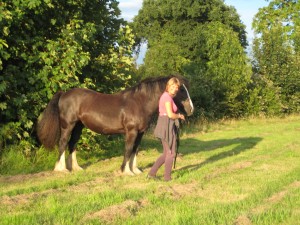
Sun Tui & Lozen
Anna Pell, one of the great tour guides for Kathleen, made sure to stop at Stonehenge on our way back up to Hampshire for the Advanced workshop. Truly a magnificent site with the energy of the ancient ones filling the air. The knowledge and spiritual wisdom of the ancient ones, the Anazazi in the American Southwest, Stonehenge and New Grange in Ireland gives one pause to reflect on the messages and gifts they can convey to us today to support us in this time of change.
Anna Pell, Miranda Carey, Yvonne Monahan and Kathleen conducted an advanced 4 day workshop for individuals already familiar with equine facilitated learning which was held at Hazeley Farm in North Winchester, Hampshire. We all had an opportunity to work with a great group of people coming from England, Belgium, Holland and Ireland. The horses at the farm proved to be masters at this work.
Kathleen spent time with Ruth LeCocq and her family on the Island of Jersey. Ruth and Kathleen gave a day long demonstration for mental health professionals. One of the participants had such a profound experience with Ruth’s horse, Klaus that she decided to bring her young clients to have an opportunity to feel this for themselves.
Yvonne Monahan invited Kathleen to spend some time with her family in Ireland. A whirlwind of sightseeing and meeting the heart-felt Irish people brought back memories of her visit to Ireland with her father 20+ years ago. It truly felt like coming home.
A visit to Newgrange and Knowth, ancient Irish sites in the Boyne Valley, tells the story of prehistoric man’s concept of the world; the flat earth with a hemispercial bowl overhead.The passages into the Newgrange and Knowth mounds are aligned with sunrise and sunset on the solstitial and equinoctial days each year. The sacredness of these sites reminds us to humbly see all of creation as connected and necessary.
